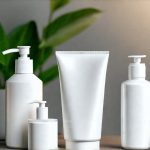The pervasive use of scented products in modern life – from laundry detergents and cleaning supplies to personal care items like soaps, lotions, and feminine hygiene products – often goes unquestioned. We’re frequently drawn to pleasant smells associating them with cleanliness, freshness, and even well-being. However, beneath the appealing aromas lies a complex relationship between these fragrances and our intimate health, particularly for those with vulvas, vaginas, or penises. Many scented products contain chemicals that can disrupt delicate biological systems, leading to irritation, allergic reactions, and potentially long-term health consequences. This isn’t about demonizing fragrance entirely; it’s about understanding the potential impacts and making informed choices to protect our bodies.
The issue is compounded by a lack of transparency in fragrance labeling. The term “fragrance” on an ingredient list can represent hundreds of undisclosed chemicals, many of which haven’t been thoroughly tested for safety or their impact on reproductive health. This ambiguity makes it difficult for consumers to know exactly what they are exposing themselves to. Furthermore, marketing often equates scent with hygiene, leading people to believe that unscented options are somehow “less clean,” a misconception that perpetuates the use of potentially harmful products. The goal is not necessarily avoidance of all scented items but rather an awareness and conscious selection based on individual sensitivities and health considerations.
The Chemistry of Scented Products & Intimate Disruption
Scented products rely heavily on synthetic chemicals to create their appealing aromas. These aren’t naturally occurring essential oils, though some products may contain them in small quantities. Instead, they are often derived from petrochemicals and include substances like phthalates, parabens, synthetic musks, and volatile organic compounds (VOCs). These ingredients can linger on the skin and within the body after use, potentially causing disruption. The intimate areas are particularly vulnerable due to their sensitive mucous membranes and thin skin, making them more easily permeable to these chemicals.
The impact isn’t simply about immediate irritation; it’s also related to endocrine disruption. Many fragrance ingredients mimic hormones, interfering with the body’s natural hormonal balance. This can affect reproductive health, immune function, and even neurological development. For example, phthalates, frequently used in fragrances to help scents last longer, have been linked to altered hormone levels and developmental issues. Similarly, synthetic musks accumulate in breast milk and fatty tissues, raising concerns about long-term exposure and potential health effects. Understanding how hormones affect urinary health can shed light on these risks.
The vagina is a self-cleaning organ with a delicate ecosystem of bacteria crucial for maintaining its pH balance. Introducing foreign chemicals through scented products can disrupt this microbiome, leading to an overgrowth of harmful bacteria or yeast, resulting in conditions like bacterial vaginosis (BV) or yeast infections. For individuals with penises, frequent exposure to harsh chemicals can cause skin irritation, dryness, and even affect sperm quality. The core issue is that the body doesn’t need fragrance to be clean; it has its own natural mechanisms.
Vaginal Microbiome & Scented Products
A healthy vaginal microbiome relies on a dominance of Lactobacillus bacteria, which produce lactic acid to maintain an acidic pH (around 3.8-4.5). This acidity inhibits the growth of harmful organisms. Scented feminine hygiene products – including washes, wipes, pads, and panty liners – often contain detergents, fragrances, and other chemicals that can raise the vaginal pH, creating a more hospitable environment for unwanted bacteria to thrive.
- Using scented soaps or washes internally is strongly discouraged by healthcare professionals. The vagina is designed to cleanse itself; external cleansing should be with plain water only.
- Scented pads and panty liners can also introduce irritants and disrupt the microbiome, especially when used daily. Switching to unscented organic cotton options can minimize exposure.
- Symptoms of a disrupted vaginal microbiome include itching, burning, abnormal discharge, and odor. These symptoms warrant a consultation with a healthcare provider.
The idea that a vagina should smell “sweet” or floral is a societal construct perpetuated by marketing. A healthy vagina has a mild, natural scent; any significant change in odor often indicates an imbalance requiring attention. Protecting the vaginal microbiome means minimizing exposure to unnecessary chemicals. It’s also important to understand how scented products trigger UTIs in women, as disruption can increase susceptibility.
The Impact on Penile Health & Sperm Quality
While much of the focus surrounding scented product-related health issues centers on vulva/vagina owners, penile health is also vulnerable. The skin on the penis is sensitive and can react negatively to harsh chemicals found in soaps, body washes, and even laundry detergents used on underwear. This can manifest as:
- Skin irritation and redness
- Dryness and flaking
- Allergic contact dermatitis (a rash caused by direct contact with an irritant)
Beyond skin sensitivities, studies suggest that exposure to phthalates and other endocrine disruptors present in scented products may negatively impact sperm quality. These chemicals can affect sperm motility (movement), morphology (shape), and concentration, potentially reducing fertility.
It’s important to note that the use of lubricants or sexual enhancement products with added fragrances poses a similar risk. Choosing fragrance-free options is crucial for individuals concerned about their reproductive health. Prioritizing gentle, hypoallergenic cleansers and avoiding unnecessary scented products are key steps towards maintaining penile health. Additionally, understanding how antibiotics affect urinary health in women can help inform decisions regarding overall wellness.
Alternatives & Minimizing Exposure
Fortunately, there are several ways to reduce exposure to harmful chemicals in scented products:
- Read Labels Carefully: Look beyond the “fragrance” label. Seek out products that list all ingredients clearly and avoid those with vague descriptions.
- Choose Unscented Options: Opt for unscented or fragrance-free versions of personal care items, cleaning supplies, and laundry detergents whenever possible.
- Select Natural Alternatives: When scent is desired, explore options containing pure essential oils in low concentrations – but even these should be used cautiously due to potential allergenicity.
- Wash Intimate Areas with Water Only: Avoid scented soaps, washes, and wipes for internal cleansing of the vulva/vagina or penis.
- Consider Organic Cotton Underwear & Pads: This minimizes exposure to synthetic materials and dyes.
The trend towards transparency in product labeling is growing, but consumers must remain vigilant and advocate for more comprehensive disclosure from manufacturers. By making informed choices and prioritizing gentle, natural alternatives, we can protect our intimate health and well-being while still enjoying a sense of cleanliness and freshness. Ultimately, understanding the potential risks associated with scented products empowers us to make healthier decisions for ourselves and our bodies.





















